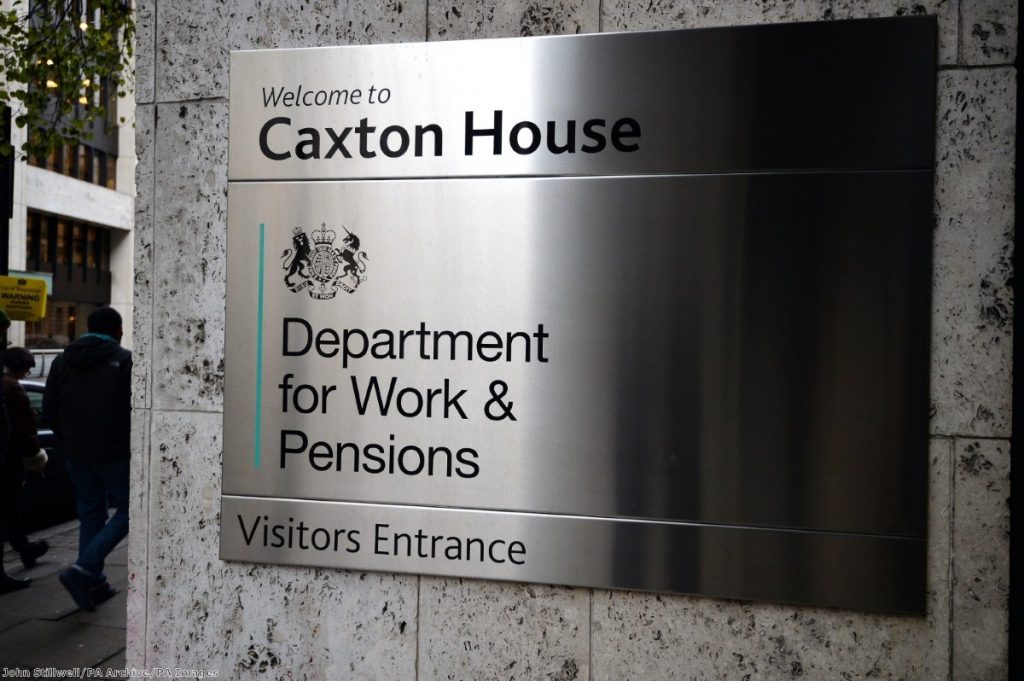By Chaminda Jayanetti
The number of benefit sanctions imposed on job seekers has shot up by 50% in the space of six months, Politics.co.uk can reveal.
The number of sanctions imposed on people claiming Jobseeker's Allowance or Universal Credit rose from 18,994 last July to 33,860 in December, before falling back to the 30,000 mark by March this year.
In the six months to March, the most recent month for which data is available, the number of sanctions had risen by 50%.



"It is a matter of real concern that the number of people on Universal Credit being sanctioned is increasing," shadow employment minister Margaret Greenwood said.
"This data shows further evidence of the Tory government letting vulnerable groups down, fuelling poverty and even destitution in the UK.
"A recent Public Accounts Committee report suggested that sanctions are being 'applied inconsistently' and used as a 'blunt instrument'."
Politics.co.uk has combined both published and unpublished data from the Department for Work and Pensions. While figures for the old Jobseeker's Allowance benefit are routinely published, recent data for the newer Universal Credit system is much harder to come by.
The true sanctions figures are actually likely to be higher, as the Universal Credit data excludes claimants in numerous parts of the country.
Politics.co.uk excluded sanctions imposed on claimants of disability benefit, as the most recent of these figures are often subsequently revised sharply downwards.
Benefit sanctions are imposed by the government for a raft of major and minor infractions of the rules imposed on jobseekers, such as leaving a job or training programme 'without good reason' or failing to participate in back-to-work schemes. They trigger a suspension of benefit payments for between four weeks and three years.
Sanctions became notorious after they were frequently imposed on people for trivial reasons, such as being slightly late for routine job centre meetings, and are a key driver of food bank usage.
They have long formed part of the benefit system in various guises, with tens of thousands of sanctions handed out under the last Labour government as unemployment rose amid the financial crisis.
They rocketed under the coalition and peaked at around 90,000 in October 2013, as the government introduced sanctions of up to three years in the supposedly most extreme cases. However, sanction rates then fell steadily before their recent resurgence in the last year.
The driver of this resurgence has been a sharp rise in the number of sanctions imposed on Universal Credit claimants, as the new benefit is rolled out across the country.
While there are a raft of grounds on which Universal Credit sanctions can be imposed, nearly two-thirds of them are down to one single cause – failing to 'comply with an interview requirement'.
The Department for Work and Pensions (DWP) says that sanctions surged late last year because the department was clearing a backlog of cases, which had built up amid problems introducing the new benefit system.
However, official figures show the DWP has also become stricter in deciding whether to impose a sanction when confronted by a supposed breach of the rules – 76 per cent of these decisions resulted in a sanction being imposed in March 2017, compared to under 70 per cent in early 2016.
A DWP spokesman said:
"We allocated more resourcing to processing decisions at the end of last year which is shown in the figures. However, overall it's only a small minority of JSA and UC claimants who are sanctioned and that is when they've not met their agreed commitments."












